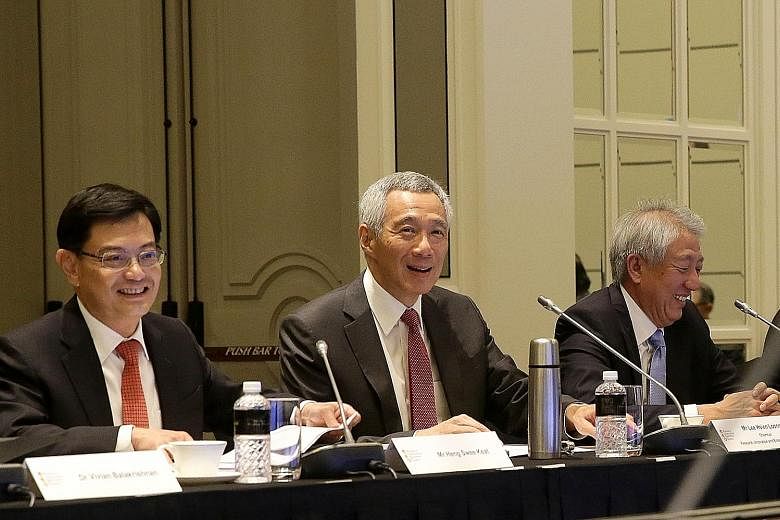Singapore remains committed to basic research even as it places more attention on innovation and enterprise, Prime Minister Lee Hsien Loong said yesterday.
"You must keep a balance between basic research, which has long-term yields... and the innovation and enterprise parts, which are more focused on economic returns," he said.
Mr Lee, who was speaking to reporters at a press conference after the Research, Innovation and Enterprise (RIE) Council meeting yesterday, added: "The spending on basic research has remained steady."
Summing up Singapore's research efforts to date, he said that it is timely to review what has been done and see if adjustments have to be made.
"It could be a shift between different sectors of research. It could be a shift of emphasis within a sector of research - which activities to put more resources on, which activities need to be scaled back," he said.
The RIE Council was set up in 2006 to chart the direction for Singapore's research and development. It includes Cabinet ministers as well as local and foreign members of the business, science and technology communities. In 2016, $19 billion was set aside under the RIE 2020 plan for Singapore's science and technology research over the next five years.
Yesterday, PM Lee also spoke on the importance of striking the right tone for research partnerships between the public and private sectors. The Government does not want to take an approach where it sets out detailed specifications and guidelines for what it wants companies to achieve, he said.
"You are to prove this and develop this... and then you put in a bid. The question is fixed beforehand and the answer comes later on. When it comes to research and development, which is a more open-ended and uncertain exercise, probably this is not the best way to do it," he added.
Finance Minister Heng Swee Keat, who chairs the National Research Foundation, said the private sector's expenditure on research and development has grown as a percentage of the country's gross domestic product. But he hopes more companies will step up their research and innovation efforts.
"In Budget 2019, we talked about how we can help companies to grow capabilities so that they can compete better. An important aspect of growing capability is the ability to leverage technology," he said.
PM Lee said the country had to continue to ignite passion among its young to pursue careers in science and technology, and inculcate in them a mindset that embraces scientific, objective, evidence-based decision-making. This rational ethos must be shared by schools, companies, public agencies and the population at large, he said, adding that such a conducive social environment is key for good scientific work that Singaporeans benefit from.
"We cannot afford to have people who are fearful and distrustful of science, or who are held captive by totally groundless anti-scientific beliefs," he said, citing how elsewhere, anti-vaxxers refuse to allow their children to be vaccinated against life-threatening diseases.
He noted that Singapore had more than 35,000 research scientists and engineers in 2017, seven in 10 of whom were either citizens or permanent residents. And as far as such scientific talent is concerned, "our doors are wide open", he said.
"We are talking about maybe hundreds of people, maybe a couple of thousand people," he added. "If we give the impression that we are not open and we don't welcome talent, and that we are closing in, I think it will be a lot of harm."


